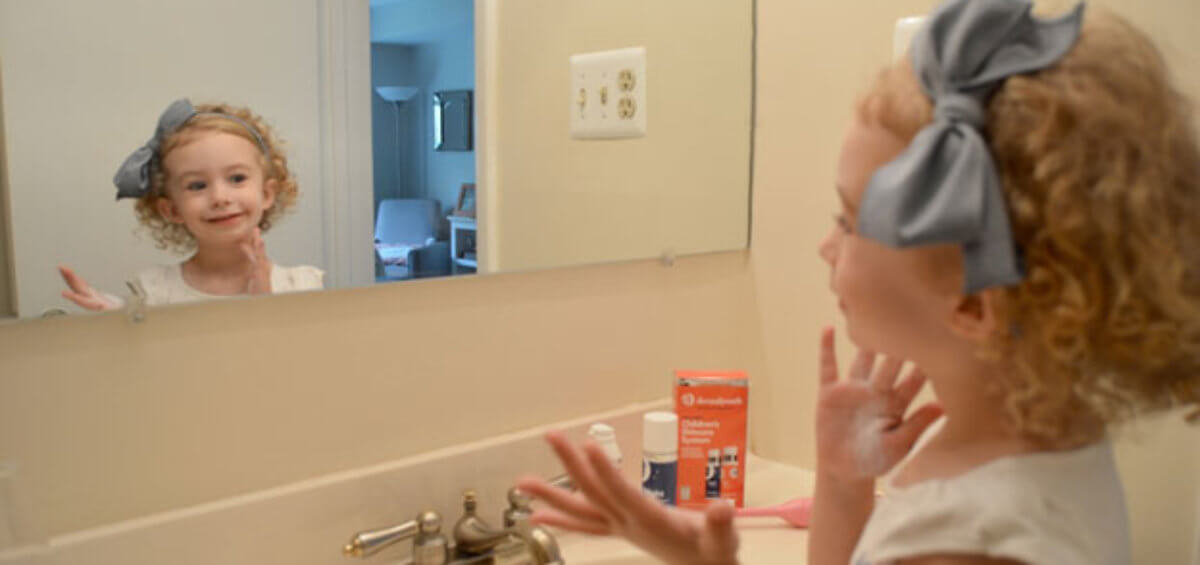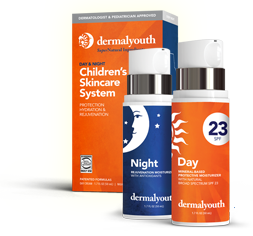Skin is the body’s largest organ. And like our other organs, such as the heart, liver, and lungs, it has an important job to do: protect what is inside from getting out, and keep outside aggressors (germs, dirt) from getting in. But in the daily bustle of life, it’s easy for skin to get dehydrated or worse—sunburned—without the right skincare products. That’s why from the time your child is a small baby, it’s a good idea to start them on a healthy, pediatrician-approved skincare system that includes SPF and moisturizers.
Here, four reasons why starting this habit with your children matters:
- #DailyHabit : Like toothbrushing, using daily skincare which includes moisturizer and sunscreen of at least SPF 15 is a vital factor for healthy skin well past childhood. By starting your child off with this habit early, it will become as ingrained and seamless in their daily routine as picking up the toothbrush before leaving the house.
- Early prevention : According to org, on average, a person’s risk for melanoma doubles if he or she has had more than five sunburns*—not so hard to achieve if you consider the amount of time many children spend outside in the sun unprotected: walking to the bus, playing during recess, team sports, riding their bikes, etc. Indeed sunburns aren’t just a beach or pool threat! However, SkinCancer.org also notes that regular daily use of a sunscreen with SPF 15 or higher reduces the risk of developing squamous cell carcinoma by about 40 percent, and the risk of developing melanoma by 50 percent. SPF needs to be a non-negotiable daily habit!
- Builds resistance : Babies and children’s skin is not as resistant to outside aggressors as adult skin, such as germs or dirt. But by using a daily skincare routine, you can help support and protect the still developing acid mantle, or outer layer of the skin. Plus, by starting your child on skincare products at an earlier age, you may help ward off some of the more common skin afflictions that children struggle with as they reach their teenage years, such as acne or redness.
- Unintended damage : While parents generally do a good job applying sunscreen in the summertime when their kids are at the pool, beach, or other high-sun activities, many experts believe everyday exposure to the sun and environment also leads to skin damage and urgently—skin cancers. Daily skincare with SPF and moisturizers protects children from these other sources of damaging UV rays that you probably never think about such as certain kinds of overhead lights, or sitting next to a window or while driving in the car, as well as those times when outside but not thinking about sun exposure, such as soccer practice, outdoor field trips or excursions, playing on the playground, standing at the bus stop…sun exposure from even these generally limited times outside can still cause UV damage in your children’s skin. Bottom line is, anytime you are outside, no matter the duration or season, your child’s skin should have SPF on it, period.
Remember, even if you don’t see it, sun damage could be lurking which is why prevention and protection are the keys to maintaining lifelong healthy skin for your child(ren). And while they are still young, the easiest way to do this is give them to a simple skincare system that is as regular to their day as brushing their teeth or eating breakfast. Be sure to select products that are dermatologist and pediatrician approved, and that offer all-day benefits, such as our Day & Night Daily Children’s Skincare System which was designed just for kids and only takes ten seconds to apply. Formulated with healthy ingredients like borage seed oil and shea butter, as well as the sunscreens Zinc Oxide and Titanium Dioxide, this quick two-step process includes a daytime moisturizer with SPF 23, and an evening lotion to keep skin hydrated and protected around the clock. DermalYouth products are formulated for children, but perfect for the entire family!
*SkinCancer.org. Skin Cancer Facts & Statistics. Accessed on October 23, 2017 at http://www.skincancer.org/skin-cancer-information/skin-cancer-facts






Leave a Comment